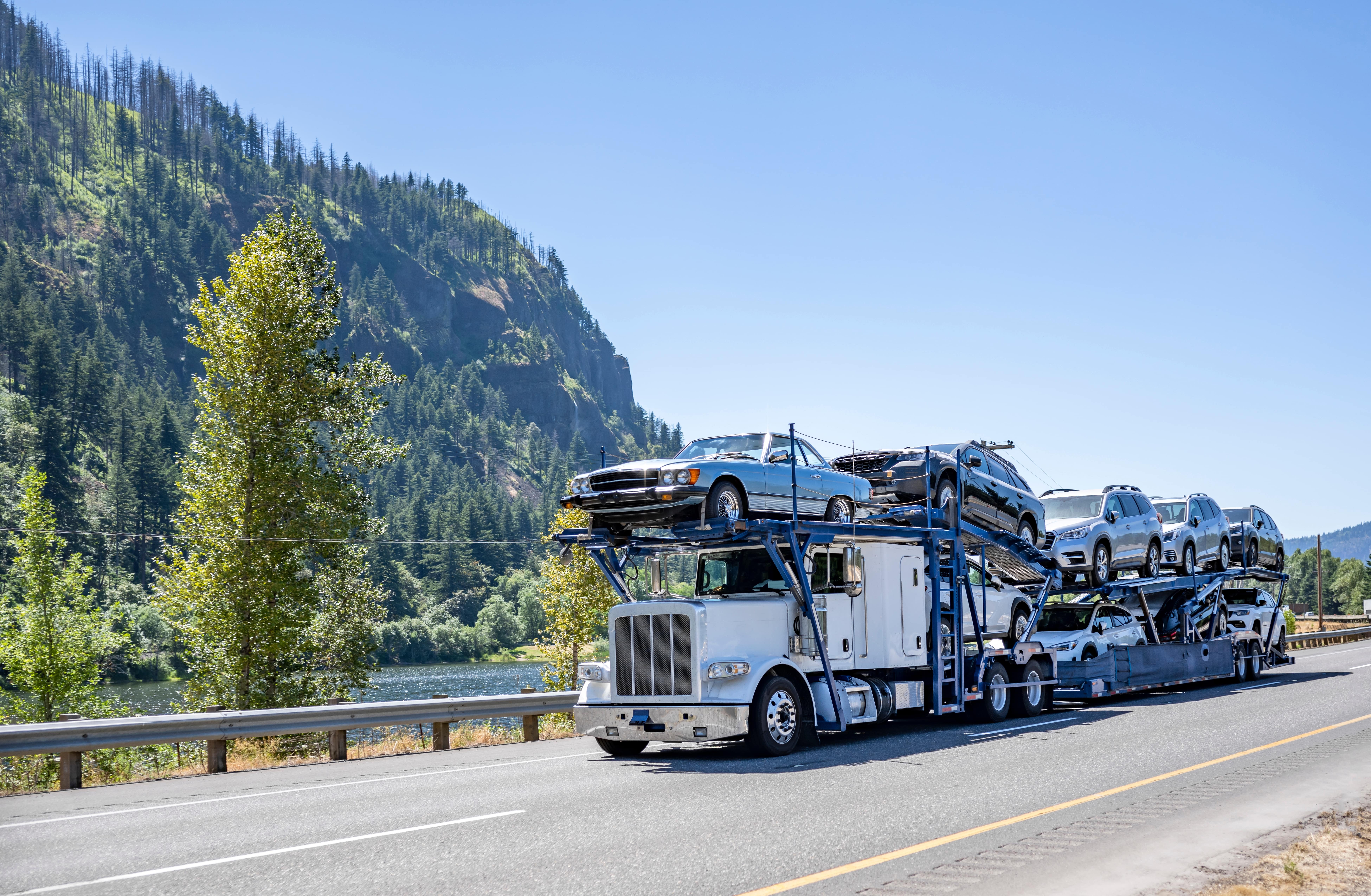Your car surely is one of your most precious assets, and it is not easy for anyone to entrust their vehicles to an auto transporter. When transporting a vehicle, the first thing to consider is whether it will be safe on the road or not. Insurance is one way to compensate car owners when transporting their vehicles because it creates a safety net in case something happens.
In this article, we will walk you through the types of auto transport insurance after demonstrating its importance and whether or not auto transport insurance in the U.S. can be skipped.
Why is auto transport insurance important?
The importance of auto transport insurance comes from building trust with clients, relieving them from the stress and worries about their cars being entrusted to a carrier driver they don’t know. In other words, it gives the clients peace of mind that the carrier takes responsibility for repairing their car or offering suitable compensation if the vehicle was damaged or stolen while in transit.
Three types of auto transport insurance coverage
The parties involved in the auto transport procedure are the broker, the carrier, and the customer. Each might carry or provide insurance, but each differs from the others.
Broker insurance
Brokers are not responsible for any damage to the car since carriers don’t belong to them, and they are not shipping the car themselves. Brokers only connect clients with reputable carriers, charging a commission for doing so.
Therefore, brokers are not legally required to provide insurance, yet some provide gap insurance to attract customers. Gap insurance covers the difference between a car’s value and the carrier cargo’s insurance if the latter is insufficient to cover any potential damage.
In other words, it is extra coverage, which clients can purchase as a proactive action for optimal protection. However, auto transport brokers are allowed to offer insurance upon the condition of working with only licensed and adequately insured carriers.
Carrier insurance
Car carriers are required by federal law to carry liability insurance of at least $ 100,000 in addition to cargo insurance; otherwise, they cannot obtain their licenses and operate legally. Carriers’ coverage amount can be as high as one million dollars, depending on the kind of vehicles they haul, the distances they travel, and the size of their trailers.
Most people think the mentioned insurance covers each hauled car by itself, but that is never true. In fact, the insurance coverage a carrier carries is divided into the number of cars the carrier has onboard. So, if the carrier, for example, offers $ 100,000 liability insurance and carries eight vehicles, the coverage for each vehicle on the truck is $ 12,500.
Hence, it is recommended to ask how many cars the carrier hauls in advance to know how much coverage your vehicle will get. You might consider buying extra insurance if the coverage is less than the vehicle’s value.
It is critical to keep in mind that carriers provide coverage for hauled vehicles in transit. The carriers’ insurance only covers damages that the cars may be exposed to due to the driver’s negligence. However, damage caused by natural disasters or theft of personal items inside the vehicles is not covered, nor are personal belongings, whether damaged or lost.
Customer insurance
Customer insurance refers to the auto insurance customers have on their vehicles. Depending on each insurer’s policies, their car insurance may or may not provide car coverage during transport. The best way to know if auto insurance includes auto transport is to contact the insurer and ask about their car transport policy.
Skipping auto shipping insurance in the U.S.
Reading this far, it is clear that skipping insurance while transporting vehicles in the United States isn’t possible. Legitimate auto carriers must be licensed and insured and will only get licensed if they provide the minimum liability coverage. As for brokers and customers, it is not their responsibility to have auto transport insurance. Still, customers can buy additional coverage for their peace of mind.
Conclusion
In the end, though it is not common for hauled cars to have accidents or get damaged while in transit, no one knows what unexpected events may arise. So, sufficient auto transport insurance is the most important part of the shipping transaction.
If you are looking for a dependable company to ship your vehicle safely, Tempus Logix has everything one looks for in an auto transport company, from the proper licenses and professional staff to a huge network of licensed, insured, and veteran carriers nationwide.
The company’s network of carriers includes more than 25,000 companies, and within eight years of doing business, Tempus Logix has shipped over 45,000 vehicles of all types across the United States. All it takes to confirm the company’s credibility is checking online reviews since it has over 1000 positive feedback and is rated highly across all platforms like BBB, Facebook, and Google.










